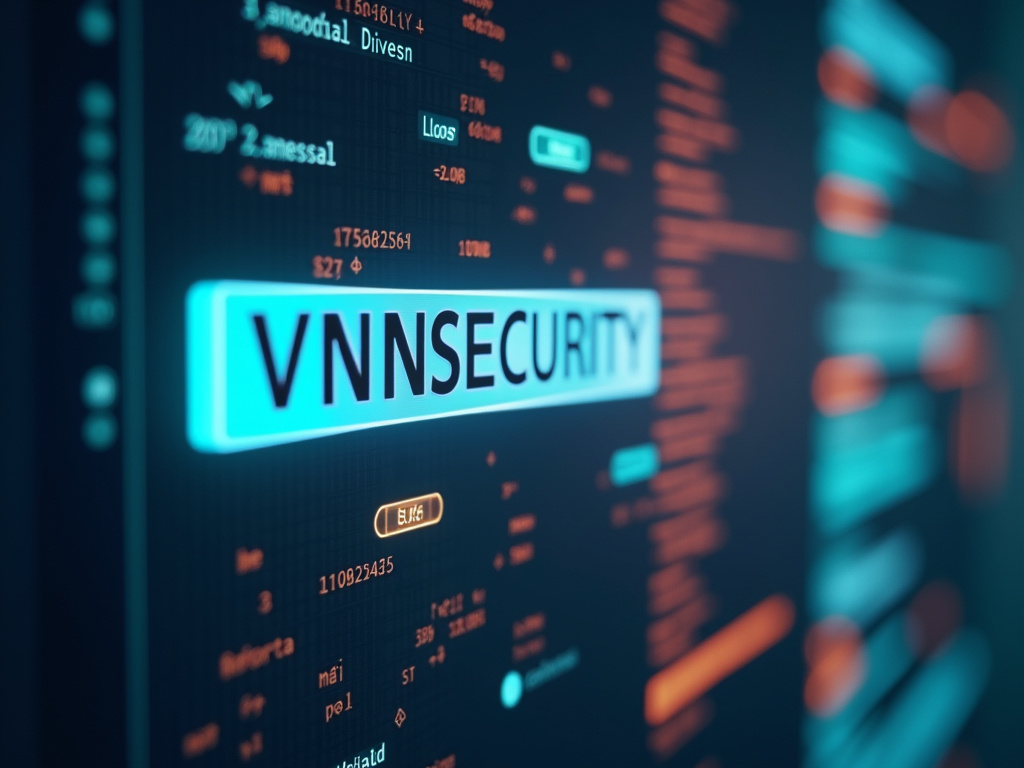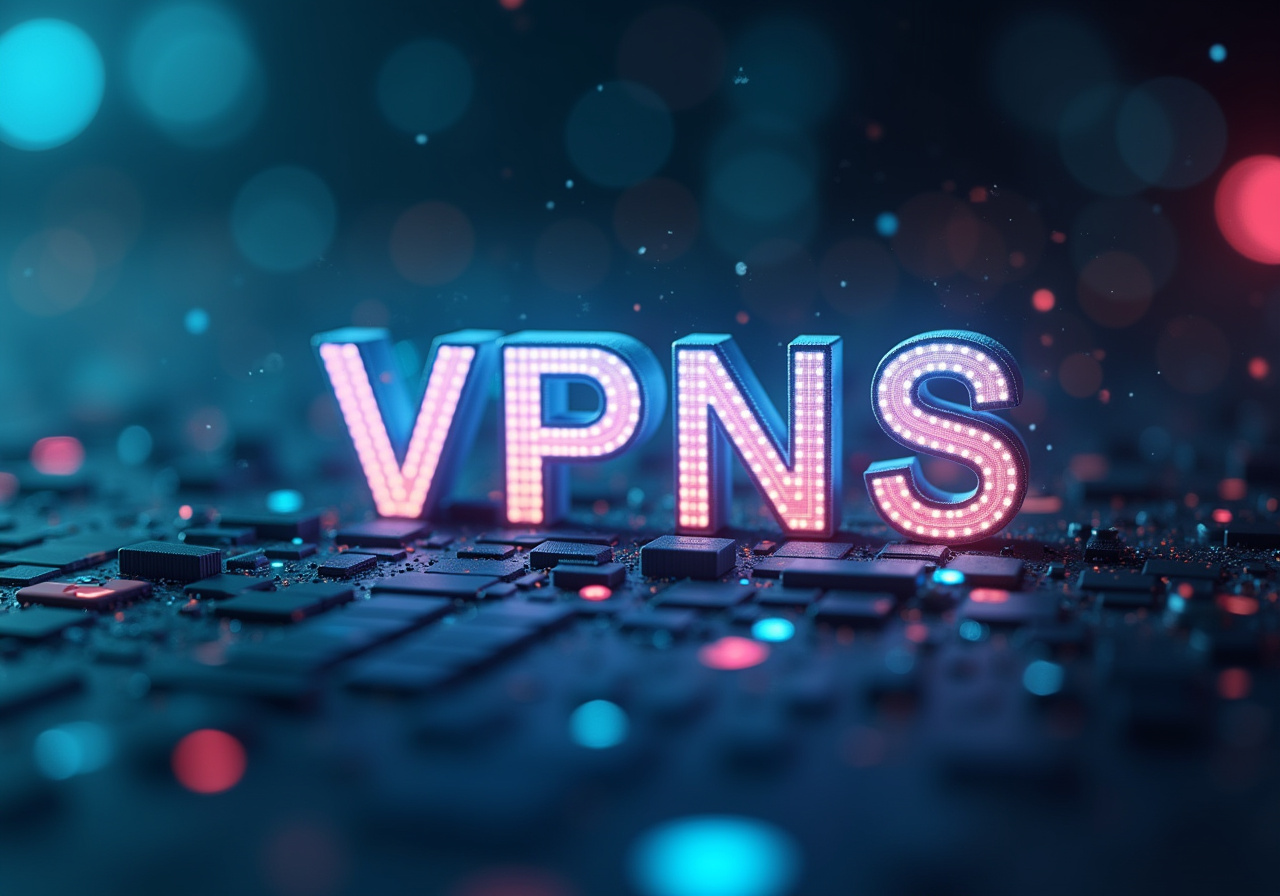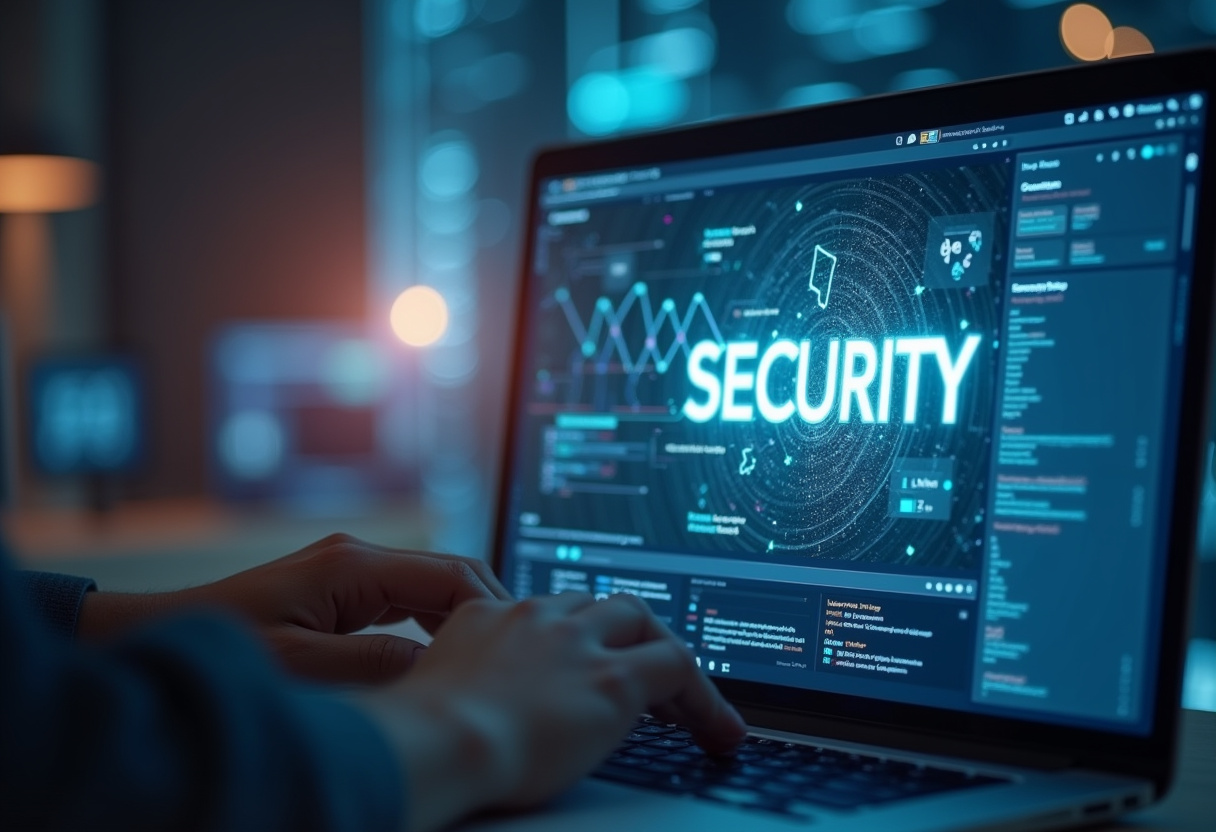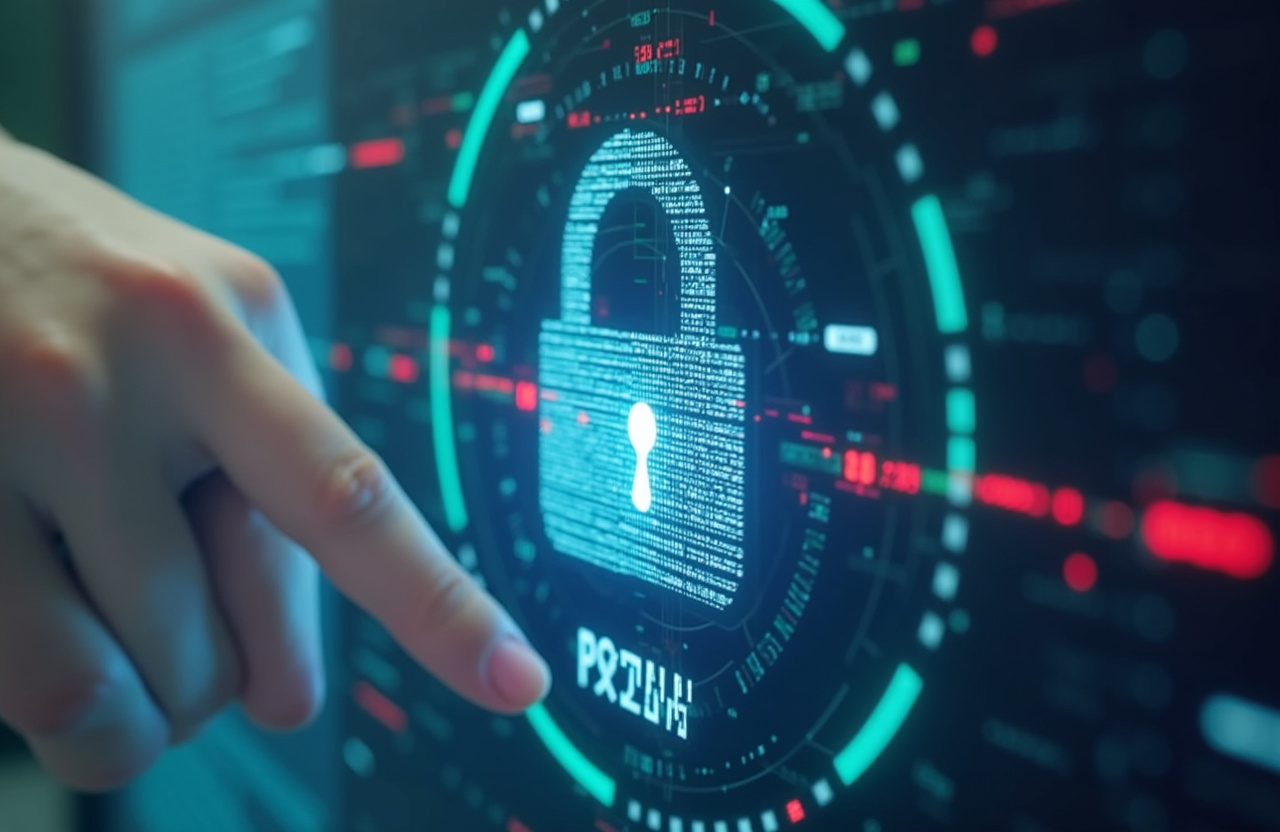VPNs for Online Education Portals: Ensuring Secure Access
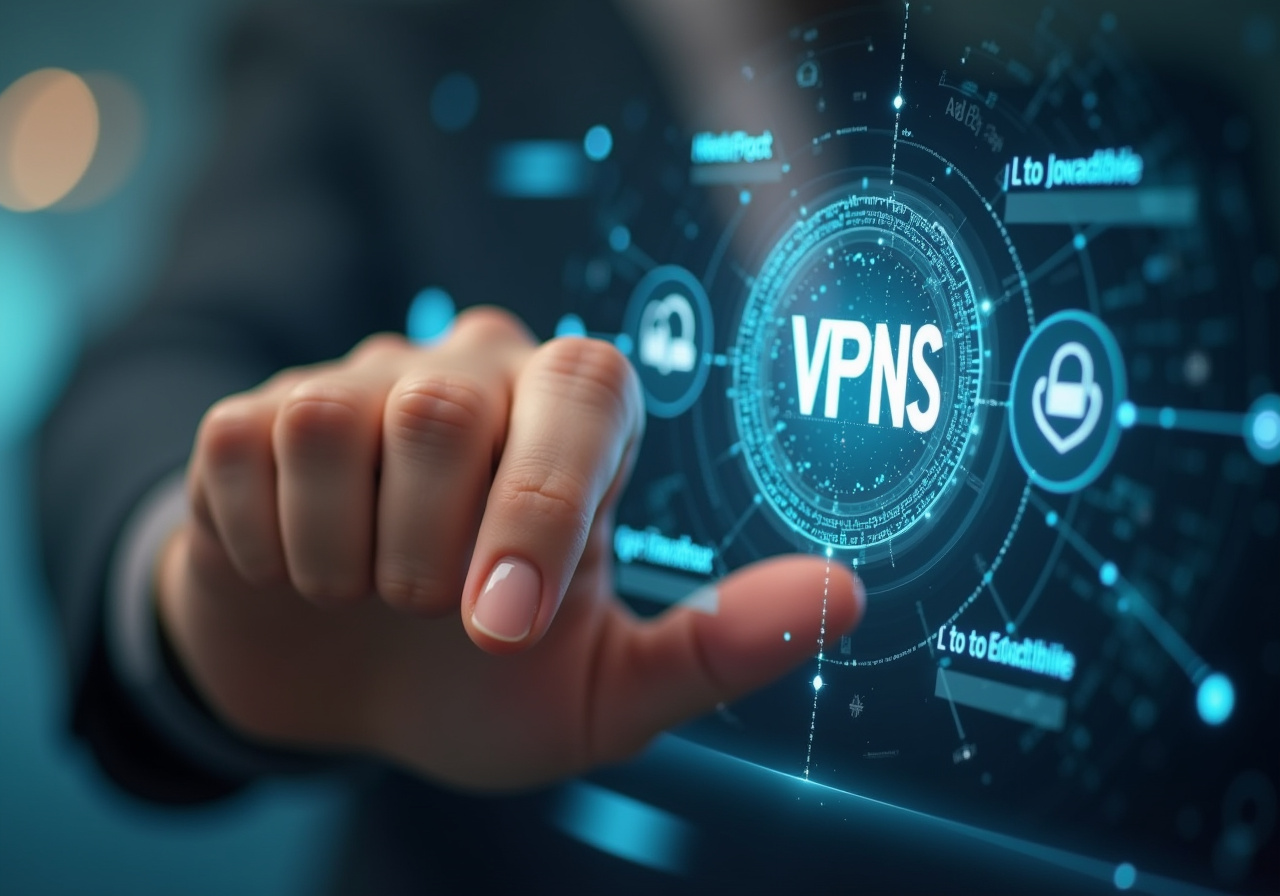
Table of Contents
- The Growing Need for Secure Access in Online Education
- Understanding VPNs and Their Role in Data Protection
- Benefits of VPNs for Students, Educators, and Institutions
- VPNs for Services: Enhancing Security for Subscription-Based Platforms
- The Future of VPNs in Subscription Services: AI, Blockchain, and Enhanced Integration
The Growing Need for Secure Access in Online Education
In an increasingly interconnected world, the digital landscape has revolutionized the way education is accessed and delivered. Online education portals have emerged as vital platforms, connecting students, educators, and resources across geographical boundaries. These platforms offer unparalleled flexibility and accessibility, enabling learners to engage with educational content anytime, anywhere.
However, this digital transformation also introduces significant cybersecurity challenges. Education portals handle a tremendous amount of sensitive data, including student records, financial information, and intellectual property. Protecting this data from unauthorized access, breaches, and misuse is of paramount importance.
A single security incident can have far-reaching consequences, damaging the reputation of the institution, disrupting learning activities, and exposing students and faculty to identity theft and financial fraud. As a result, education portals are increasingly recognizing the need for robust security measures to safeguard their digital assets and ensure a safe and trustworthy learning environment. One of the most effective tools for enhancing the security of online education portals is the Virtual Private Network, or VPN.
A VPN creates a secure, encrypted connection between a user's device and the education portal's server, effectively shielding data from prying eyes as it travels across the internet but also making a secure tunnel connection over all the data in the education portal. This encrypted tunnel prevents eavesdropping and unauthorized access, safeguarding sensitive information from potential cyber threats. By masking the user's IP address, a VPN also enhances online anonymity, making it more difficult for malicious actors to track their online activity.
The importance of using an education portal VPN is heightened when students access online learning resources from public Wi-Fi networks. Public Wi-Fi hotspots, found in cafes, airports, and libraries, often lack adequate security measures, making them vulnerable to cyberattacks. Cybercriminals can easily intercept data transmitted over unsecured Wi-Fi networks, potentially compromising personal information, login credentials, and financial details.
By connecting to a VPN before accessing an education portal on public Wi-Fi, students can encrypt their traffic and mask their IP address, significantly reducing the risk of their data being compromised. Furthermore, a VPN can help students bypass geo-restrictions imposed on certain educational content. Some educational resources may be restricted to specific geographic regions due to copyright laws or licensing agreements.
A VPN allows students to connect to servers in different locations, effectively spoofing their location and gaining access to content that would otherwise be unavailable. This is particularly beneficial for students studying abroad or those enrolled in international online programs. From the perspective of education institutions, implementing VPN solutions provides a centrally managed and highly effective way to enhance the security posture of their online education platforms.
By requiring students and staff to connect through a VPN, institutions can ensure that all traffic accessing the education portal is encrypted and secure. This reduces the risk of data breaches, ransomware attacks, and other cyber threats, protecting sensitive student and faculty information. A culture of security within the educational institution is promoted through the proactive implementation of VPNs, it underscores a deep commitment to user data protection and learning privacy.
This commitment fosters greater confidence among students, educators, and administrators, creating a secure and trustworthy learning environment. This, in turn, can lead to increased engagement with digital resources, improved learning outcomes, and a stronger overall reputation for the institution. As online education continues to grow in importance, the use of VPNs will become even more vital for ensuring secure access, user data protection, and learning privacy for all stakeholders.
Understanding VPNs and Their Role in Data Protection
The implementation of a VPN for education within online education portals provides a multi-layered approach to security, bolstering defenses against a wide range of cyber threats and promoting a safe and reliable learning environment. The primary function of an education portal VPN is to create a secure and encrypted tunnel between the user's device and the education portal's server, shielding data from interception and unauthorized access. This encrypted tunnel acts as a virtual fortress, protecting sensitive information from eavesdropping and tampering.
This is achieved through advanced encryption protocols that transform data into an unreadable format, rendering it useless to cybercriminals who might attempt to intercept it. These protocols, such as AES (Advanced Encryption Standard) with key lengths of 256 bits or higher, employ complex mathematical algorithms to scramble data, making it virtually impossible to decipher without the correct encryption key. Encryption acts as the first line of defense, ensuring that even if data is intercepted, it cannot be deciphered and exploited.
In addition to encryption, a VPN masks the user's IP address, effectively hiding their true location and identity. This anonymity layer makes it more difficult for malicious actors to track the user's online activity or target them with phishing attacks, malware infections, or other scams. By concealing the user's IP address, a VPN provides an additional layer of privacy and security, enhancing their overall online protection and reducing their vulnerability to targeted attacks.
Authentication protocols are employed by VPNs to verify the identity of users before granting them access to the education portal. This ensures that only authorized individuals, such as enrolled students, faculty members, and approved administrators, can access sensitive data and resources. A VPN that provides the correct authentication protects unauthorized individuals from accessing confidential data and reduces the risk of insider threats.
Multi-factor authentication (MFA) adds an extra layer of security to the authentication process by requiring users to provide multiple forms of identification, such as a password and a one-time code sent to their mobile device or generated by an authenticator app. This makes it significantly more difficult for attackers to gain unauthorized access, even if they manage to obtain a user's password, as they would also need to compromise the user's secondary authentication factor. Access control policies can be implemented within the VPN to restrict user access to specific resources based on their role or permissions.
For example, students might only be granted access to course materials and assignments, while administrators might have access to sensitive student records, financial information, and other administrative tools. Implementing a granular access control, based on role or the type of user, helps to prevent unauthorized individuals from accessing confidential data and reduces the risk of insider threats and data breaches. Moreover, VPNs can assist in enforcing data residency requirements, which mandate that data must be stored and processed within a specific geographic location.
This is particularly important for education portals that operate in countries with strict data privacy laws, such as the European Union's General Data Protection Regulation (GDPR). A VPN can ensure that all data transmitted between the user's device and the education portal's server remains within the designated geographic boundaries, helping to comply with these regulations and avoid potential legal penalties. To ensure ongoing security and effectiveness, regular security audits and penetration testing should be conducted to identify and address potential vulnerabilities in the VPN infrastructure and ensure that it remains secure against evolving threats.
This proactive approach helps to maintain the integrity and confidentiality of the education portal's data and resources, minimizing the risk of cyberattacks and data breaches.
Benefits of VPNs for Students, Educators, and Institutions
Selecting the appropriate type of education portal VPN and tunneling protocol is crucial for ensuring optimal security, performance, and user experience. The decision-making process should take into account the specific needs and requirements of the institution, the sensitivity of the data being protected, and the technical expertise available to manage and maintain the VPN infrastructure. There are two primary types of VPNs commonly used in education settings: site-to-site VPNs and remote access VPNs.
Each type serves a distinct purpose and is suitable for different scenarios. Site-to-site VPNs connect two or more networks together, allowing users on one network to securely access resources on another network. This is commonly used to connect different campuses within a university system, to securely link the university's network to a research partner's network, or to establish secure connections between administrative offices and remote learning centers.
Site-to-site VPNs typically use dedicated hardware or software appliances to establish secure and persistent connections, providing a high level of security, reliability, and bandwidth capacity. These VPNs are often configured to operate 24/7, ensuring seamless connectivity between different network locations. Remote access VPNs, on the other hand, allow individual users to securely connect to the education portal from remote locations, such as their homes, while traveling, or from off-campus study spaces.
This is essential for students and faculty who need to access online learning resources, submit assignments, participate in virtual classes, or collaborate with colleagues from outside the campus network. Remote access VPNs can be implemented using software clients installed on users' devices, through web-based interfaces accessible via a web browser, or through dedicated VPN applications available for various operating systems and devices. These VPNs provide a secure and encrypted connection, protecting data transmitted between the user's device and the education portal's server.
Several VPN tunneling protocols are available, each offering different levels of security, performance, and compatibility. Common protocols include IPsec, SSL/TLS, and L2TP/IPsec. IPsec (Internet Protocol Security) is a widely used protocol suite that provides strong encryption and authentication for VPN connections.
It operates at the network layer, encrypting all traffic between two IP addresses. IPsec is known for its robust security features and its ability to support a wide range of encryption algorithms. It is often used in site-to-site VPNs and can also be used in remote access VPNs.
However, IPsec can be complex to configure and may not be compatible with all network environments. SSL/TLS (Secure Sockets Layer/Transport Layer Security) is a widely used protocol for securing web traffic. It is often used in remote access VPNs, as it is compatible with most web browsers and operating systems.
SSL/TLS VPNs typically use a web-based interface, allowing users to connect to the VPN without installing any additional software. SSL/TLS provides strong encryption and authentication, but it may not be as secure as IPsec in some situations. L2TP/IPsec (Layer 2 Tunneling Protocol over IPsec) is a combination of two protocols.
L2TP is a tunneling protocol that creates a virtual connection between two devices. IPsec is then used to encrypt the traffic transmitted over this connection. L2TP/IPsec is a relatively secure protocol, but it can be slower than other options due to the overhead of both protocols.
When selecting a VPN tunneling protocol, it is important to consider the specific security requirements, performance needs, and compatibility constraints of the education portal and its users. A thorough evaluation of each protocol's strengths and weaknesses is essential to making an informed decision.
VPNs for Services: Enhancing Security for Subscription-Based Platforms
Beyond the fundamental security benefits, integrating VPNs into online education portals offers a range of additional advantages that can enhance the overall learning experience and streamline administrative processes. One significant benefit is improved access to geographically restricted content. Educational institutions often subscribe to online databases, journals, and other resources that are licensed for use only within specific geographic regions.
Students studying abroad or those accessing the education portal from outside the licensed region may encounter difficulties in accessing these valuable resources. A VPN allows these students to connect to servers within the licensed region, effectively bypassing the geographic restrictions and granting them seamless access to the necessary learning materials. This ensures that all students have equal access to the resources they need to succeed, regardless of their location.
Another advantage of using VPNs is enhanced privacy and data protection for students. Online education platforms collect a wealth of personal data from students, including their names, addresses, grades, course selections, and online activity. This data is valuable to educational institutions for tracking student progress, personalizing the learning experience, and improving the effectiveness of their programs.
However, it is also vulnerable to misuse, unauthorized access, or data breaches. A VPN can help to protect student privacy by encrypting their online traffic and masking their IP address, making it more difficult for third parties to track their online activity or collect their personal data. This is particularly important in light of growing concerns about data privacy and the increasing prevalence of online surveillance.
From an administrative perspective, VPNs can simplify network management and reduce the risk of security breaches. By requiring all users to connect through a VPN, institutions can centralize security policies and enforce consistent security standards across all devices accessing the education portal. This makes it easier to manage user access, monitor network traffic, and detect potential security threats.
Furthermore, VPNs can facilitate secure remote access for faculty and staff, enabling them to access sensitive data and resources from outside the campus network without compromising security. This is particularly important for faculty members who need to grade assignments, communicate with students, or collaborate with colleagues from remote locations. The implementation of VPNs can also support compliance with data privacy regulations, such as the GDPR and the Family Educational Rights and Privacy Act (FERPA).
These regulations impose strict requirements on how educational institutions collect, use, and protect student data. A VPN can help institutions to comply with these regulations by encrypting student data, restricting access to authorized personnel, and providing a secure environment for processing sensitive information. Additionally, VPNs can contribute to a more secure testing environment for online exams and assessments.
By requiring students to connect through a VPN during online exams, institutions can reduce the risk of cheating and unauthorized access to exam materials. The VPN encrypts the student's network traffic, preventing them from accessing unauthorized websites or communicating with others during the exam. Moreover, the VPN can mask the student's IP address, making it more difficult for them to be identified or located.
By providing a secure and controlled testing environment, VPNs can help to ensure the integrity and fairness of online assessments.
The Future of VPNs in Subscription Services: AI, Blockchain, and Enhanced Integration
The successful integration of VPNs into online education portals requires careful planning, configuration, and ongoing maintenance. A well-designed VPN implementation can significantly enhance security, improve user experience, and streamline administrative processes. However, a poorly implemented VPN can create new security vulnerabilities, hinder performance, and frustrate users.
Therefore, it's essential to approach VPN integration with a strategic mindset and a thorough understanding of best practices. Before deploying a VPN, it's crucial to conduct a comprehensive security assessment to identify potential vulnerabilities and assess the risks associated with online education activities. This assessment should consider all aspects of the education portal, including the network infrastructure, the application software, the user devices, and the data being transmitted.
The results of the security assessment will inform the VPN design and configuration, ensuring that it effectively mitigates the identified risks. When selecting a VPN solution, it's important to consider factors such as security features, performance, scalability, ease of use, and cost. There are a variety of VPN solutions available, ranging from open-source software to commercial products.
Each solution has its own strengths and weaknesses, so it's important to carefully evaluate the options and choose one that meets the specific needs of the education portal. The VPN should be configured to use strong encryption protocols, such as AES-256, and robust authentication mechanisms, such as multi-factor authentication. It should also be configured to enforce strict access control policies, limiting user access to only the resources they need to perform their duties.
Regular patching and updates are essential to maintain the security of the VPN. Software vulnerabilities are constantly being discovered, and attackers are quick to exploit them. Therefore, it's important to promptly install security patches and updates to protect the VPN from known vulnerabilities.
Additionally, the VPN should be monitored regularly for signs of suspicious activity. Intrusion detection systems can be used to identify and alert administrators to potential security threats. User training is a critical component of any VPN implementation.
Users need to be educated about the importance of using the VPN, how to connect to the VPN, and how to recognize and avoid phishing attacks and other security threats, training is essential for enhancing the overall security posture of the education portal. Clear and concise instructions should be provided to users, and ongoing support should be available to address any questions or concerns. A well-defined incident response plan is essential for handling security breaches and other incidents.
The incident response plan should outline the steps to be taken in the event of a security incident, including who to notify, how to contain the incident, and how to recover from the incident. Regular testing of the incident response plan is essential to ensure that it is effective. Performance monitoring should be conducted to ensure that the VPN is not negatively impacting the performance of the education portal.
The VPN should be configured to optimize performance, and network traffic should be monitored to identify and address any performance bottlenecks. Finally, regular audits of the VPN implementation should be conducted to ensure that it is still meeting the security needs of the education portal. The audits should be conducted by independent security professionals and should include a review of the VPN configuration, security policies, and incident response plan.
By following these best practices, education portals can successfully integrate VPNs into their online learning environments, creating a more secure, reliable, and user-friendly experience for students, faculty, and administrators. The long-term benefits of a well-implemented VPN outweigh the initial costs and efforts, ensuring the protection of valuable data and the continuation of high-quality online education.
Stay Updated
Get the latest VPN news, tips, and exclusive deals to your inbox.
